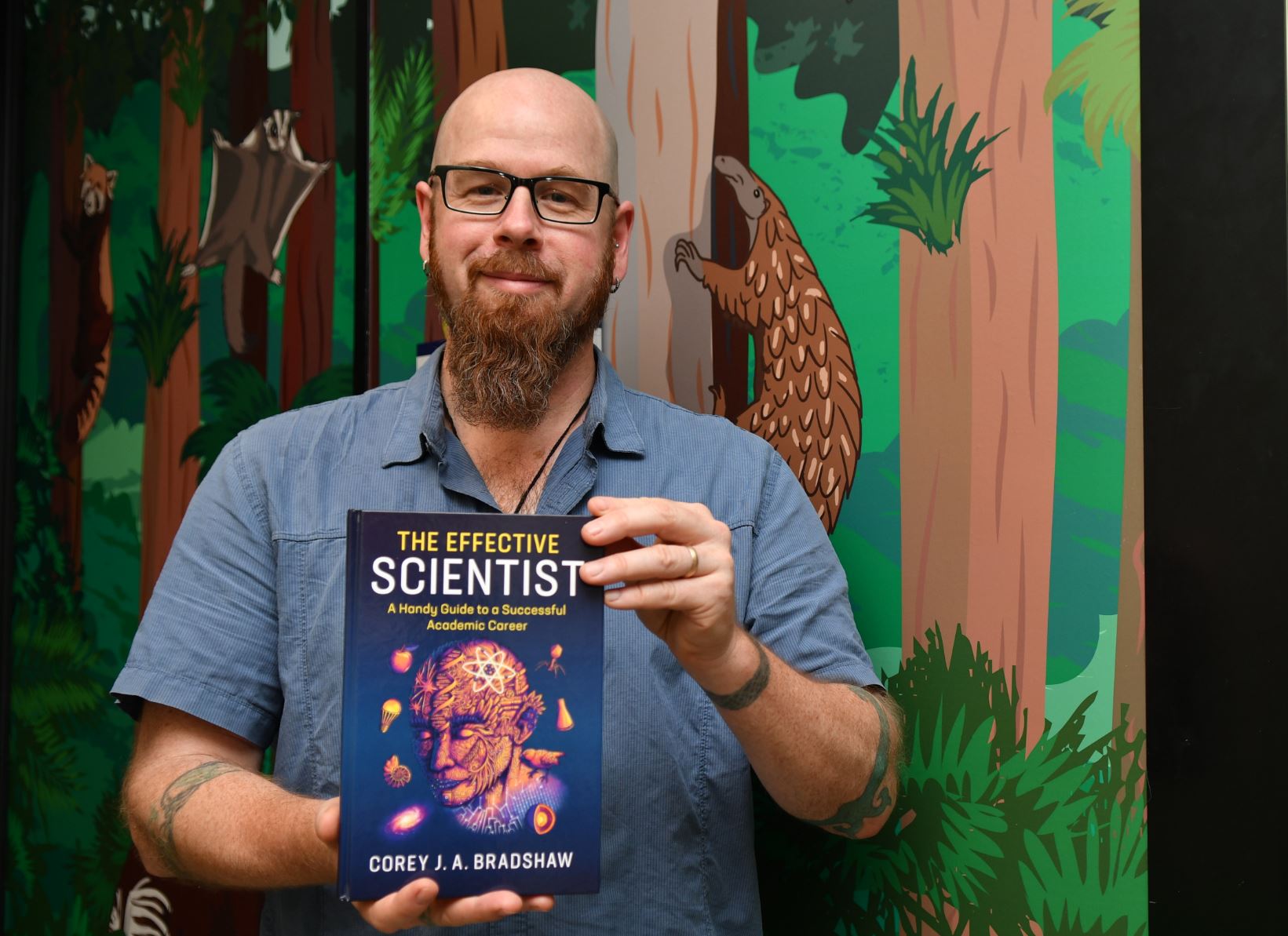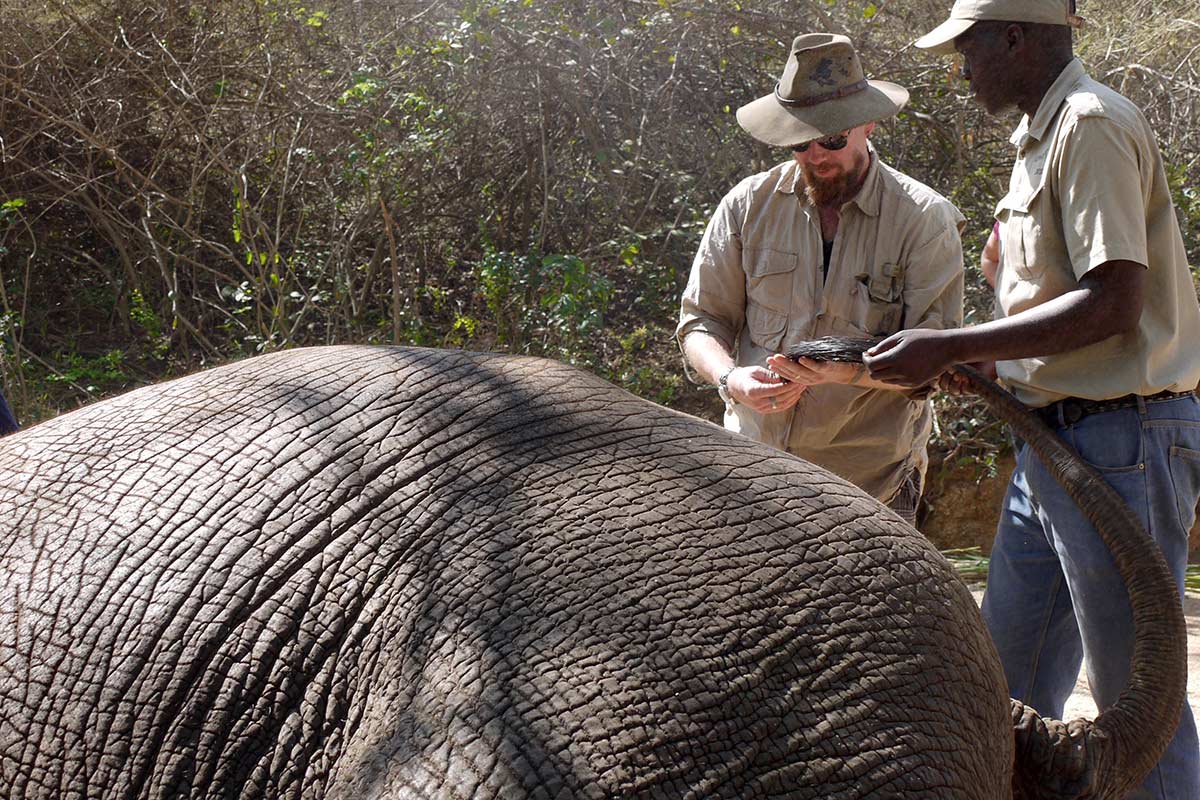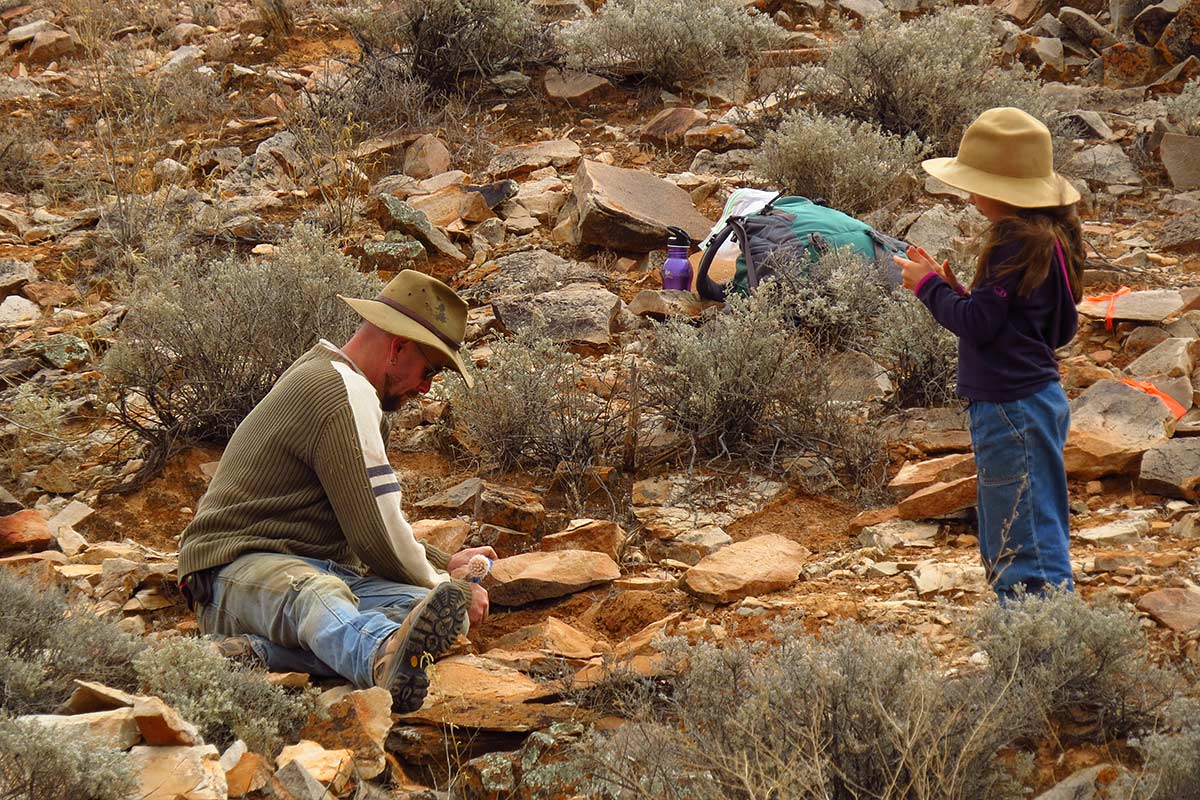
The pathway to success for a modern scientist is strewn with more than just academic challenges.
After years of fielding enquiries from fellow scientists about how best to navigate the tricky aspects of bidding for funding, public presentations, media engagement and so on, Flinders University’s Professor Corey Bradshaw realised that his advice would be best collated in a new book.
The Effective Scientist: A Handy Guide to a Successful Academic Career ($34.95, released in Australia by Cambridge University Press this week) comes at a critical time for science programs and grant applications in Australia.
“When various bits of advice about the mistakes that I’d made and learned from over the years became the most popular posts on my blog about conservation science, I realised this was something many academics need to have explained in more detail,” says Professor Bradshaw, Matthew Flinders Fellow in Global Ecology at the College of Science and Engineering at Flinders.
“These are things for which a scientist never receives formal training at university, but are now crucial elements to master if they want to be successful.”
Aiming to embrace all scientists with a far-reaching set of recommendations, Professor Bradshaw’s book The Effective Scientist will be officially launched in Adelaide on Monday 16 April at Flinders University Victoria Square.
“It’s a quick-and-dirty guide about what academics need to know, to maximise the chance of their scientific work being effective,” says Professor Bradshaw.
“It underlines that scientists must exert influence beyond academic circles, and also to apply and market their research to non-scientists.”
The book takes an all-encompassing approach to improve a scientist’s career, starting with writing and publishing – which Professor Bradshaw says is a scientist’s most important weapon in the academic arsenal – but also covering financial aspects and tips on how to run a lab effectively.
“I’ve deliberately placed great emphasis on the clarity of language, and the need for greater public discourse by academics,” says Professor Bradshaw. “There’s a growing need to engage with the wider community about science, but that requires a particular skill set beyond what a scientist normally gets taught.
“This certainly includes tips on effectively using social media, but also traditional media.
“I can’t think of one senior academic who hasn’t been burned at least once by a bad media experience – but it doesn’t have to be this way. It’s about learning from experiences, which I’ve laid out in this book for others to absorb.”

Professor Bradshaw says the book also discusses such sensitive aspects as dealing with personality conflicts and stress management, along with gender, race and sex issues, which are of increasing relevance for the modern scientist working in universities, industries and engaging with the wider public.
The book’s preface says:
Being a scientist means that you have to be exceedingly versatile and talented. Not only must you master the cumulated knowledge, tools and techniques of your chosen discipline, you must also become a poet, a grammarian, a mathematician, a journalist, a marketer, an entrepreneur, a financier, a socialite, a diplomat, a politician, a protestor, and a leader, while simultaneously maintaining your family relationships and friendships.
Professor Bradshaw has published more than 260 peer-reviewed scientific articles, three books and nine book chapters, in addition to his research being regularly featured in Australian and international media.
His latest book features illustrations by René Campbell, a self-taught professional visual artist and marine ecologist based in Adelaide.
Her illustrations include the use of traditional and digital media, with animals, nature, science and even fantasy as common themes. She has illustrated science brochures, presentations and manuscripts, logos and marketing designs for various laboratories and a range of clients both in-and-out of science.

For more information about the University’s launch of The Effective Scientist at Flinders University, level 1, 182 Victoria Square, Adelaide on 16 April go to the Event link here
To attend the book launch and René Campbell exhibition, from 5pm to 7pm on 16 April, please register online.

